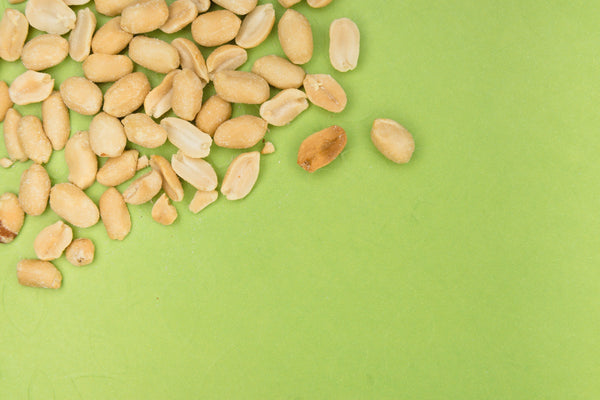Teaching Kids to Garden— A Lifetime Lesson
share this article
Kids connect with nature while learning how microbes and compost create healthy soil.
By teaching our kids how to garden, we’re not just planting tomatoes—we’re nurturing gut health, food literacy, and an appreciation for the source of our wellbeing, Earth. Let’s explore how soil, food, and the gut are connected—and how we can turn our backyard or balcony into the healthiest classroom on the planet. Let’s go!
The Health Benefits of Gardening for Kids
"Gardening supports kids' physical, emotional, and digestive health."
Gardening is a hands-on, sensory-rich experience that nurtures children’s well-being from the ground up. Whether it’s through tasting a sun-warmed tomato or feeling the earth between their fingers, gardening gives kids powerful lessons in health and biology that stick for life.
Here’s how gardening enhances children’s physical, mental, and gut health:
-
Boosts Physical Activity: Gardening engages the entire body—bending, digging, lifting, and raking. These tasks build strength, coordination, and flexibility while getting kids outside in the fresh air and sun.
-
Strengthens the Immune System: Soil contains helpful microbes that train the immune system. Playing in dirt can reduce allergy risks and build resilience.
-
Encourages Healthy Eating Habits: Kids are more likely to try vegetables they’ve helped grow, making gardening a fun, effective way to introduce healthy foods.
-
Promotes Gut Health: Homegrown veggies and fruits are rich in fiber and nutrients that support gut flora. Soil microbes may also benefit children’s internal ecosystems.
-
Improves Mental Well-being: Gardening lowers stress and promotes mindfulness. Watching a seed grow into a plant helps kids feel calm and accomplished.
-
Builds Responsibility and Confidence: Caring for a plant teaches accountability. Kids take pride in growing something themselves.
-
Fosters Curiosity and Scientific Thinking: Gardening prompts kids to ask questions about growth, bugs, water, and weather—teaching them natural science through lived experience.
-
Encourages Connection with Nature: Gardening pulls kids away from screens and into the rhythms of nature. They learn about seasons, ecosystems, and sustainability.
Here at Begin, we’re convinced gardening is one of the best ways to take care of our kids’ health on a daily basis. Getting sun and soil exposure while having some fun is a great gut recipe!
Parent-Friendly Tips to Start a Garden with Kids
You don’t need a huge yard to teach kids about soil and food. Whether you have a garden bed, a few pots on the patio, or even a sunny windowsill, here’s how to get growing:
-
Start Small: Begin with easy crops like lettuce, radishes, or herbs like basil and mint.
-
Build a Compost Bin Together: Teach kids how kitchen scraps turn into healthy soil. Use a clear bin so they can watch the process.
-
Use Kid-Sized Tools: Get kid-friendly gloves, watering cans, and shovels to make gardening more fun and accessible.
-
Create a Garden Routine: Let kids water, harvest, and compost regularly. Turn it into a daily or weekly ritual.
-
Label and Decorate: Use painted rocks or signs to mark what’s growing. This adds creativity and ownership.
Easy Seeds to Germinate for Kid-Friendly Gardening
"Quick-growing seeds help kids see progress fast—and keep them excited!"
-
Sunflowers: Big, easy-to-handle seeds that sprout fast and grow tall.
-
Radishes: Fast growers that are ready to eat in under a month.
-
Lettuce: Sprouts quickly and is fun to pick leaf by leaf.
-
Peas and Beans: Kids enjoy watching them climb and tasting them fresh off the vine.
-
Marigolds: Bright flowers that grow easily and help deter pests.
These plants are forgiving and rewarding, making them perfect for beginner gardeners of all ages.
Fun Ideas Kids Will Love
Make learning fun with worms, colorful veggies, and creative garden art.
-
Worm Watching: Start a worm bin or find worms in the soil and teach kids how they help create humus.
-
Grow a Rainbow: Plant colorful veggies and challenge your kid to eat the rainbow.
-
Taste Testing: Compare homegrown produce to store-bought. Let kids describe the difference in flavor.
-
Soil Art: Let kids draw the layers of soil, label microbes, and design their own garden layout.
-
Microbe Storytime: Create a story about friendly microbes helping plants grow and protecting our tummies.
What If You Don’t Have a Garden Space?
"No yard? No problem! Gardens can thrive indoors or in shared spaces."
-
Grow Indoors: Use containers to grow herbs or lettuce on a sunny windowsill.
-
Join a Community Garden: Many towns have garden plots where families can grow their own food.
-
Volunteer on a Local Farm: Find farms that offer educational programs or volunteer opportunities for kids.
-
Visit Farmers Markets Together: Talk to growers about how they care for their soil and why their food tastes better.
Bringing It Full Circle: Compost, Soil, and Gut Health
Let your kids follow the journey of food:
-
Scraps go in the compost
-
Compost turns into humus (healthy soil)
-
Soil grows fruits and veggies
-
Food feeds the gut microbiome
-
A healthy gut supports a healthy body
It’s a full-circle lesson in sustainability, biology, and nutrition—and your kid gets to be part of it every step of the way.
Summary: Healthier Soil, Healthier Food, Healthier Kids
Teaching kids to garden is one of the most valuable gifts we can give them. It’s not just about growing food—it’s about understanding how everything is connected: soil, plants, microbes, and their own bodies.
By showing our kids how nutrient-dense food grows in healthy soil—and how that food fuels a strong, resilient gut—we build a foundation for lifelong health and environmental stewardship.
So let’s grab a shovel, get a little dirty, and grow something delicious together. Because the path to healthy kids starts in the garden.
















